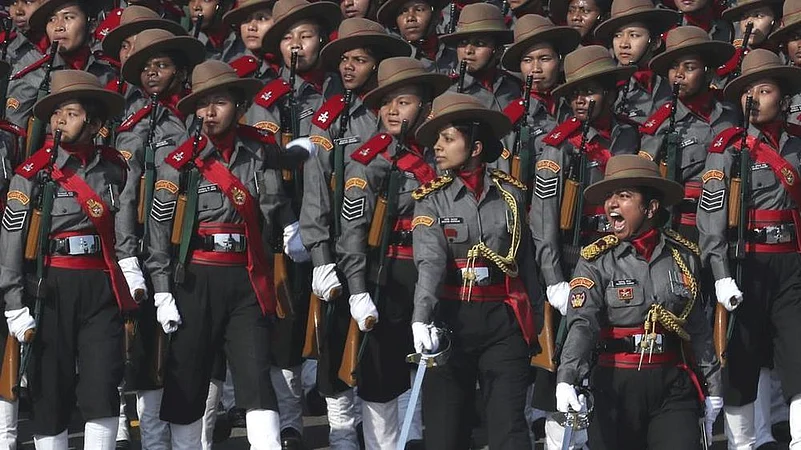There are enough jokes about the hen-pecked man dutifully submitting to his wife, and the she-wolf with a whip, masquerading as the boss in the workplace (that is if women ever make it past the ‘sexy secretary’ tag). The truth is that most men probably don’t like taking orders from women. But that cannot, in any way, be a reason not to hire women at leadership positions. It is an argument that is bound to fail, and it did.
After an intense legal battle, the Supreme Court recently ordered the government to give equal roles to both men and women in the Indian armed forces. Now, women will have the same opportunities, tenure, rank, pension and promotion as men. It also means that women will hold command positions, and lead.
Advertisement
There is no doubt that this is a huge step towards gender equality. But it will not be easy. The military is traditionally a strong male bastion, one that fiercely protects its ‘brotherhood’, and fears that its masculine bonding will be affected by the presence of the opposite sex. But this was also one of the incongruous reasons for resisting the integration of African Americans and gay men from the American army. Fear should not keep out change.
The induction of women officers started in 1992. It was through a short service commission that allowed them to work up to 14 years. Permanent commissions were limited to the army’s legal and educational wings. Combat roles were excluded (and still are). There are about 1.4 million active personnel in the armed forces, of which a minuscule number are women. Hopefully that will rise. After this ruling, young girls might consider joining the military as a career choice.
Advertisement
The exclusion of women till now is justified in many ways. A large part of the debate is centered around the physical capabilities of women vis-a-vis men. But that is a myopic view. We need to move the focus away from muscle and strength, and look at the skills that women bring to the table. Diversity can go a long way in making the military more effective. Women soldiers deployed in the Afghanistan war were a lot more successful at seeking out information and getting the support from the local womenfolk and the villagers than their male counterparts. This is increasingly important as modern warfare does not have traditional fronts, and is certainly not limited to hand-to-hand combat like in the ancient times.
Another surprising reason given by the government was that ‘pregnancy, motherhood and domestic obligations’ are factors that would interfere in women taking up these roles efficiently. In these days of gender sensitivity, imagine the uproar if a large, well-known company declines women promotions stating something like this!
The government also opposed the move in court, saying soldiers, who were mostly from rural backgrounds, were not used to accepting orders from women. No doubt patriarchal mindsets are hard to change, but that can’t be an excuse to maintain status quo. In fact, I would like to flip this around and hope - perhaps after this ruling men will get used to working with women, as their equal or their senior, sharing goals, ideas and responsibilities. And who knows, with time as more and more women are integrated into the force, attitudes might change. When the same men go back to their villages, they might just begin to look at their wives, mothers and sisters differently.
Advertisement
There is always resistance to change. But it is inevitable. The judgement will need a shift in the culture and mindset across the rank and file of the army. And it is about time.
Women make up half our world. They are striding into what have been traditionally male dominated professions, like science, engineering and the also the military. There has been enough written and said about the huge benefits -- economic, social, cultural and political -- of engaging women productively in the workforce. Why should the armed forces be left behind.
(Ekta Kumar is a writer, columnist, artist and works closely with the European Union on gender and civil rights-related issues. Views expressed are her own.)




















